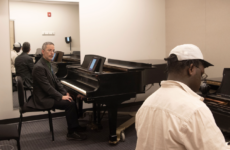In the past few years, art has increasingly become a means by which to comment on social norms. Through her slam poem titled “Gentry-Phi-Cation,” Saroya Marsh, a 26-year-old preschool teacher and youth mentor from the Bronx, NY, has received wide praise for her array of slam poems. Recently, Marsh performed a slam poem entitled “Gentry-Phi-Cation” at the 2015 Women of the World Poetry Slam and won second place, a win that not only garnered attention within the world of slam poetry, but also raised pertinent social issues with the general public.
By definition, gentrification is the renovation of urban neighborhoods involving substantially raising the cost of rent, increasing property values, and ultimately forcing low-income families out of their homes. In addition, overpriced cooperate chains replace small family businesses, taking away the authenticity and uniqueness of these communities.
The Gentrification Reader by Loretta Lees describes gentrification as the “forced disenfranchisement of poor and working class people from the spaces and places in which they have legitimate social and historical claims.” In particular, historically black neighborhoods have been experiencing negative effects of gentrification, which is why Marsh, an African-American woman, felt it necessary to express her anger about it through her poem.
Marsh’s performance at the World of Woman poetry slam included lines such as: “You move me in, stigmatize me, raise rent, kick me out, then whitewash my hood with some hipsters and coke bottle glasses and chewed up converse that will clutch their purse when I walk by tighter than a church mother holds their Bible,” and “My people are leaving! Call it reverse migration, institutionalization, incarceration or just plain murder, in any case, something dies.”
The president of Choate’s Slam Poetry Club, Kwabena Ayim-Aboagye ’16, noted of the poem, “I didn’t expect it. From the beginning, it engaged me.” He added that he felt that Marsh had very strong language and delivery, extremely important qualities in a slam poem.
“Slam poetry is fun. It’s loud. It captures people’s attention because it’s unique,” Ayim-Aboagye shared. In a recent interview, Marsh explained that she uses poetry to “fight against the injustices of the present day.” She added, “It pains me that classism and racism are still major struggles.”
Through people like Marsh, art has the power to promote and even create change in our world by educating and empowering audiences.




